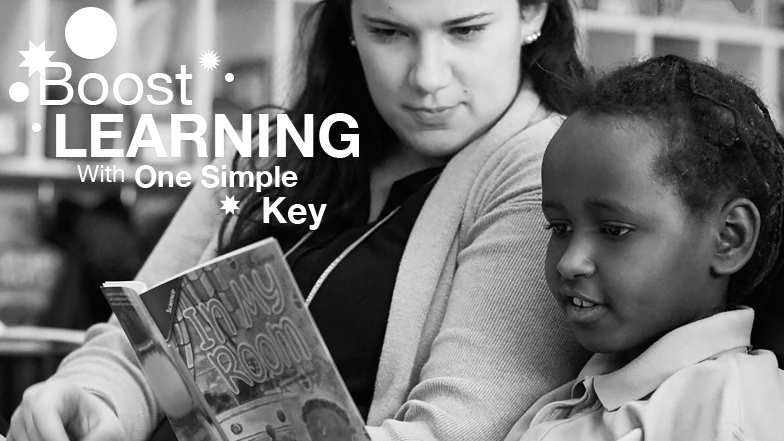Keep Summer Smart: Easy Ways to Prevent Learning Loss While Having Fun!
NHA Communications TeamNHA Communications Team
Articles by NHA Communications Team
-
What is Perseverance? Helping Your Child Learn to Keep Going
Published: Jan 05, 2026
-
Helping Students Balance Academics and Extracurricular Activities
Published: Dec 16, 2025
-
Helping Kids Build Self-Control at Home
Published: Dec 02, 2025
-
Growing Gratitude: A Moral Focus for November
Published: Nov 11, 2025
Summer is the perfect time for fun, sunshine, and family. But without some learning mixed in, students can lose ground. In fact, research shows that kids can lose up to one month of learning during summer break, often referred to as summer learning loss.
At National Heritage Academies (NHA®), we believe learning should happen everywhere, not just in the classroom. Doug Maurer with NHA’s Curriculum and Instruction says finding ways to keep learning during the summer helps prepare students for the next school year.
“At NHA, summer is a time for rest, but it’s also the perfect season to explore, discover and grow. Preventing the summer slide ensures students return to school ready to build on their successes, not catch up on lost ground.”
And during the summer months, there are easy ways to keep your child’s brain active while still enjoying summer. The best part? You can make it fun by using your child’s interests to guide their learning.
Here are a few ways to keep your child learning all summer long:
Make Time for Summer Reading
Reading is one of the best ways to stop summer learning loss. Encourage your child to read something every day, it could be a chapter book, a comic, or even a magazine. Bring books to the beach or keep a stack in the car. Let your child pick what they enjoy so they stay interested and motivated.
Try Active Learning
If your child likes to move, turn that energy into learning! Go on nature walks and look for bugs, plants, or animals. Turn your backyard into a science lab. Sign up for a sport or swimming lessons. These are all fun ways to build thinking skills while staying active.
Use Educational Screen Time
Not all screen time is bad. On rainy days, use educational screen time to help your child learn. Try apps that focus on reading or math. Watch videos that teach new skills or inspire creative thinking. Just be sure to set time limits and use a timer if needed.
Stick to a Light Routine
Summer shouldn’t feel like school but having some structure helps. Create routines with a few regular activities, like morning reading, outside time in the afternoon, and screen-free time before bed. Kids do their best when they know what to expect each day.
With just a little planning, you can help your child stay sharp and ready for the next school year. Let’s work together to make this summer one to remember full of learning, laughter, and fun!
At National Heritage Academies (NHA®), we believe learning should happen everywhere, not just in the classroom. Doug Maurer with NHA’s Curriculum and Instruction says finding ways to keep learning during the summer helps prepare students for the next school year.
“At NHA, summer is a time for rest, but it’s also the perfect season to explore, discover and grow. Preventing the summer slide ensures students return to school ready to build on their successes, not catch up on lost ground.”
And during the summer months, there are easy ways to keep your child’s brain active while still enjoying summer. The best part? You can make it fun by using your child’s interests to guide their learning.
Here are a few ways to keep your child learning all summer long:
Make Time for Summer Reading
Reading is one of the best ways to stop summer learning loss. Encourage your child to read something every day, it could be a chapter book, a comic, or even a magazine. Bring books to the beach or keep a stack in the car. Let your child pick what they enjoy so they stay interested and motivated.
Try Active Learning
If your child likes to move, turn that energy into learning! Go on nature walks and look for bugs, plants, or animals. Turn your backyard into a science lab. Sign up for a sport or swimming lessons. These are all fun ways to build thinking skills while staying active.
Use Educational Screen Time
Not all screen time is bad. On rainy days, use educational screen time to help your child learn. Try apps that focus on reading or math. Watch videos that teach new skills or inspire creative thinking. Just be sure to set time limits and use a timer if needed.
Stick to a Light Routine
Summer shouldn’t feel like school but having some structure helps. Create routines with a few regular activities, like morning reading, outside time in the afternoon, and screen-free time before bed. Kids do their best when they know what to expect each day.
With just a little planning, you can help your child stay sharp and ready for the next school year. Let’s work together to make this summer one to remember full of learning, laughter, and fun!




